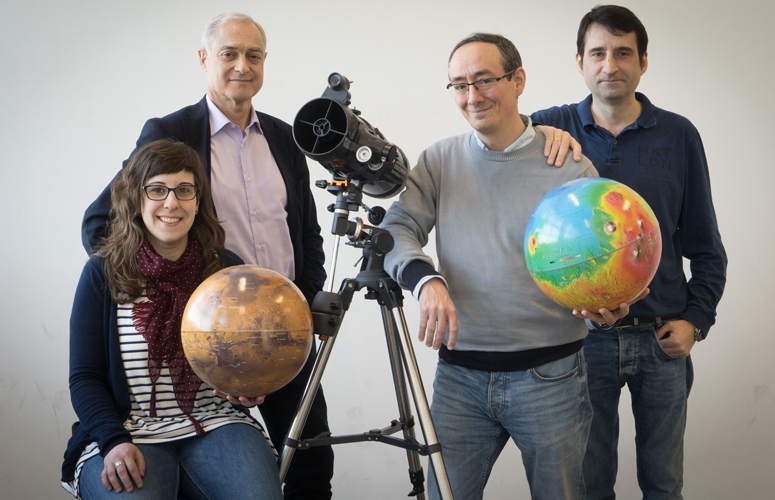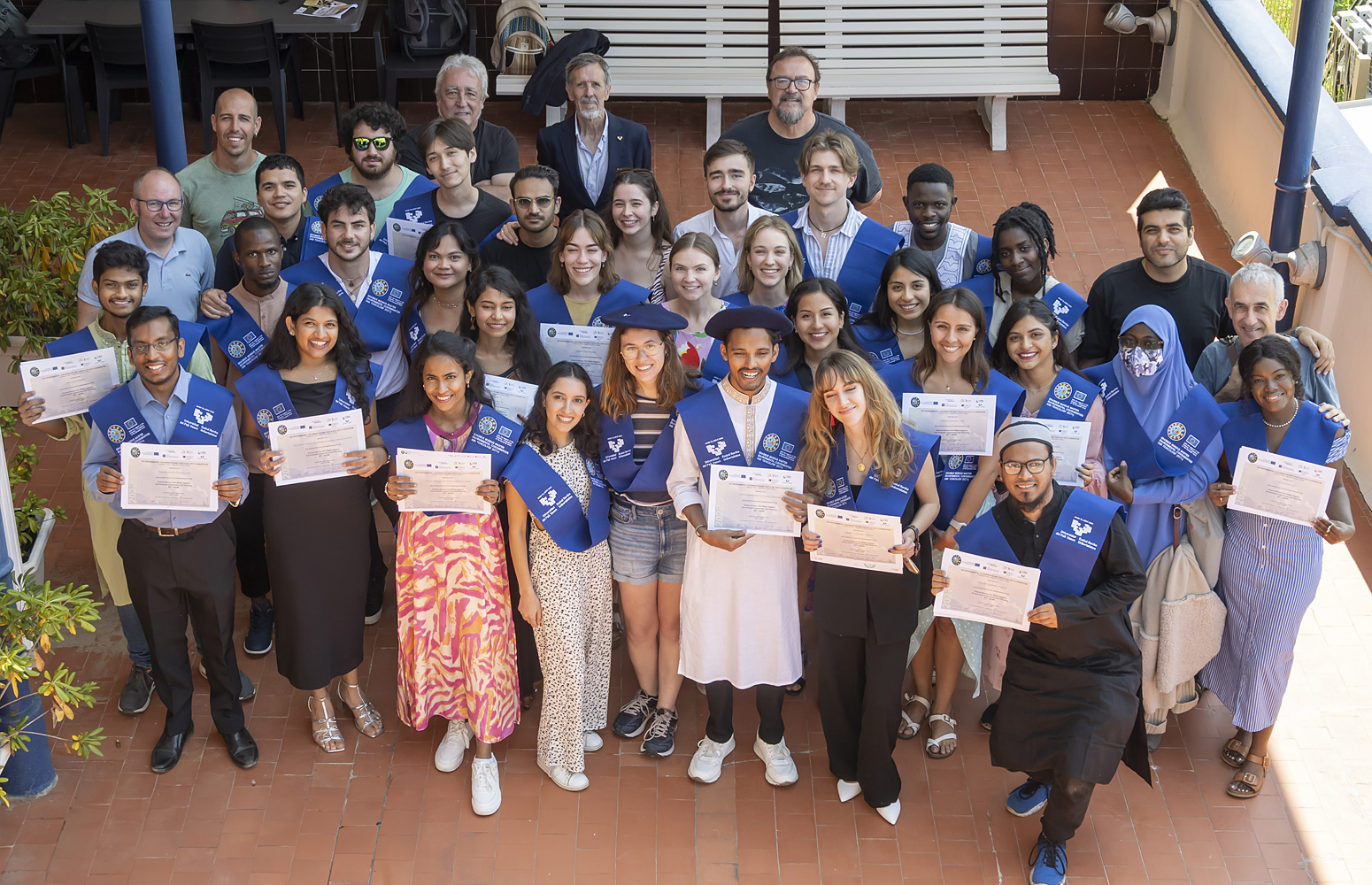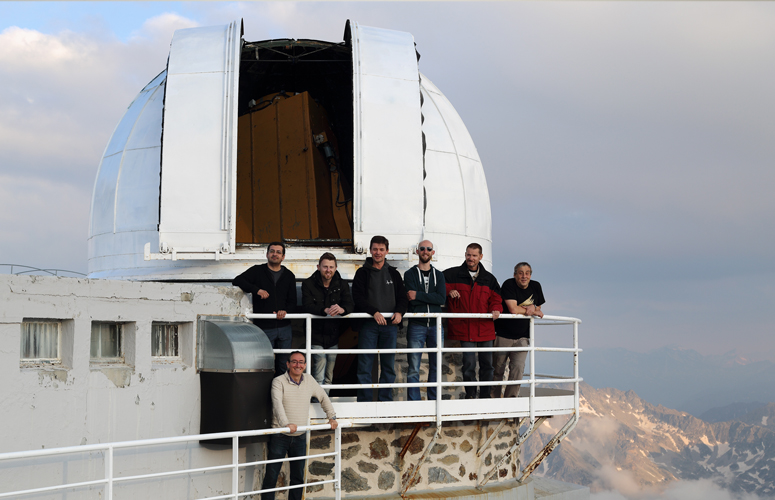The UPV/EHU’s Planetary Sciences Group participates in the Europlanet 2024 Research Infrastructure (RI) European project, funded by the European Comission. The consortium involved in the project will provide open access to the world’s largest collection of planetary simulation and analysis facilities, a large variety of middle-size telescopes and research sites, and it aims to widen participation in planetary science in a global framework.
The UPV/EHU is involved in a European research infrastructure to support planetary science
The 10 million euro project that seeks to encourage research collaborations between amateur and professional astronomers
- Research
First publication date: 25/02/2020

The UPV/EHU’s Planetary Sciences Group is a member of a recently launched European project, with a budget of 10 million euros: the Europlanet 2024 Research Infrastructure (RI). The project, which shares goals with the Europlanet Society, a recent scientific society that will articulate many of the activities developed through this project, aims to provide open access to the world’s largest collection of planetary simulation and analysis facilities, as well as a global network of middle-size telescopes, data services, and support activities to the planetary sciences community. Europlanet 2024 RI aims to widen participation in planetary science and provides the infrastructure to address key scientific and technological challenges facing the planetary research community. The project is a continuation of a previous project called Europlanet 2020 RI in which the UPV/EHU also participated during the last 4 years.
The project is funded through the European Commission’s Horizon 2020 programme and will run for four years from February 2020 until January 2024. The Europlanet 2024 RI consortium is led by the University of Kent, UK, and has 53 beneficiary institutions from 21 countries in Europe and around the world, with a further 44 affiliated partners.
“This is a step-change in ambition for Europlanet, involving 60% more partners and expanding our collaborations in Africa and, for the first time, in Asia,” said Prof Nigel Mason, the Coordinator of Europlanet 2024 RI and President of the Europlanet Society. “The project will draw on the resources of the Europlanet Society, launched in 2018, to disseminate activities and outcomes and develop a more diverse community of users.”
Europlanet 2024 RI will provide the planetary community with free ‘transnational access’ to 24 laboratories in Europe and five field sites worldwide to carry out research projects. It will also provide access to a large network of astronomical telescopes in European countries that will be used by collaborations of amateur and professional astronomers providing coordinated observations of many astronomical targets.
Prof Gareth Davies, of VU Amsterdam, who leads the transnational access programme, said: “Europlanet 2024 RI has created a unique collection of field sites and laboratories to simulate and analyse planetary environments. Planetary missions over the next decade will study very diverse targets in our own Solar System and those around other stars. Europlanet 2024 RI has chosen a suite of facilities that can best help us understand the data sent back by spacecraft and plan for future missions.”
The five field sites offered by Europlanet 2024 RI stretch from Africa to the Arctic Circle and provide terrestrial analogues for planetary environments past and present, including the icy environments Jupiter’s moons like Europa and Ganymede, geothermally active regions of Venus, Jupiter’s volcanic moon Io. Other sites mimic ancient Mars, and lava tunnels on the Moon or Mars that may house human habitats in the future.
Eleven laboratories provide simulation facilities for atmospheric and surface environments that do not exist on Earth, from the scorching surface conditions of Mercury and Venus, to low-pressure dust-storms on Mars, or the extreme cold of Uranus, Neptune and comets, as well as dust and particle accelerators to study micro impact and irradiation effects in the space. A further 13 facilities offer capabilities to analyse the composition of planetary samples with high precision and using non-destructive techniques, and to detect and sequence microbial communities found living in hostile conditions on Earth.
“Our participation in this project is focused on collaborations between amateur and professional astronomers in the field of Solar System studies”, detailed Ricardo Hueso, researcher at the UPV/EHU’s Department of Applied Physics and board member of the Europlanet Society. To this end, “our university participates by providing online services such as the PVOL database that stores more than 45,000 observations of planets in the Solar System and will offer new services in the future, including some services linked to space mission data such as the mission to Jupiter Juno. We will also coordinate astronomical observation campaigns between different institutes, observatories and professional and amateur astronomers giving more relevance to scientific collaborations in this field”.
Europlanet 2024 RI builds on the heritage of EU-funded projects dating back over 15 years. To harness collaborations developed between professional and amateur astronomers, Europlanet 2024 RI is launching a coordinated network of small telescope facilities around the world that can provide rapid response observations to support planetary missions.
The project will expand virtual access services to include a geological mapping portal, GMAP, and to exploit machine learning for automatic recognition and analysis of planetary data sets.
Over 30 databases will be added to the VESPA virtual observatory portal, which currently provides access to 54 planetary science data services derived from space missions, observation campaigns, modelling projects and laboratory experiments. Europlanet 2024 RI will also extend its planetary space weather service, SPIDER, to provide predictions and alerts for spacecraft operations in response to solar activity and support science data analysis.
To bring in new users, support the community and raise awareness of planetary science, Europlanet 2024 RI will organise training and workshops to engage industry, policy makers, early career professionals and researchers from countries that are under-represented in planetary science, both in Europe and around the world. The project will also trial a reciprocal access agreement with Chinese and Korean research facilities.
Prof Barbara Cavalazzi of the University of Bologna, who leads global collaboration activities for Europlanet 2024 RI, said: “We aim to help create a more interconnected global planetary science community and support sustainable development around new facilities, recognising the unique contribution of each community involved and building collaborative research and outreach programmes.”






